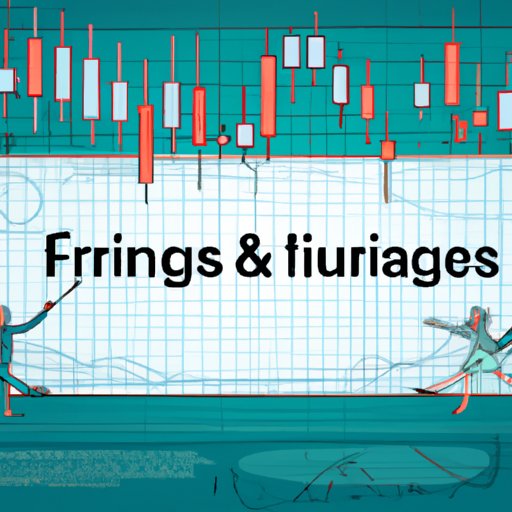Overview of Futures Trading Basics
Futures trading is the process of buying and selling contracts that represent an agreement to buy or sell a specific asset at a predetermined price on a specified date in the future. Futures trading is commonly used by investors as a way to hedge against market volatility and to diversify their portfolios. It can also be used to speculate on the direction of the market and to take advantage of leverage.
Advantages and Disadvantages of Futures Trading
One of the major advantages of futures trading is the potential for large returns with relatively small investments. Leverage allows traders to control a larger position in the market than they would otherwise be able to with just their own capital. This gives traders the opportunity to magnify their gains but also increases the risk of losses.
The main disadvantage of futures trading is the high risk associated with it. The leverage available through futures trading can quickly lead to large losses if the market moves against the trader’s positions. Furthermore, the highly volatile nature of the futures markets means that traders must be vigilant in monitoring their positions to protect against unexpected losses.
Examples of Popular Futures Contracts
Popular futures contracts include commodities such as crude oil, gold, and silver; indices such as the S&P 500 and Nasdaq 100; and currency pairs such as the U.S. dollar/Japanese yen and euro/U.S. dollar. Each of these contracts has its own unique characteristics and risks that traders should understand before entering into any trades.

Comparison of Top Online Brokers for Futures Trading
When choosing an online broker for futures trading, there are a few key factors to consider. First, evaluate the fees and commission structures offered by each broker. Fees can vary significantly from one broker to the next, so make sure to compare those carefully. Additionally, research the platforms offered by each broker to ensure that they provide the tools and features you need to trade successfully.
It is also important to research a broker’s reputation and track record. Look for reviews from other traders to get a better idea of how reliable a broker is and how well their customer service teams handle queries and complaints. Finally, check to make sure that the broker is regulated by a reputable financial authority in your country.
Tips for Trading Futures Successfully
To increase the chances of success when trading futures, it is important to develop a trading plan. This plan should include a detailed strategy for entering and exiting trades, as well as a risk management approach. Additionally, traders should keep track of market trends and news to identify potential trading opportunities.
Finally, it is essential to utilize risk management techniques to limit losses. These techniques include stop loss orders, which automatically close a trade when the price reaches a certain level, and hedging strategies, which involve taking offsetting positions in different markets to reduce overall risk.

How to Choose the Best Brokerage Firm for Futures Trading
When selecting a brokerage firm for futures trading, it is important to assess your investment objectives first. If you are looking for long-term investments, then a discount broker may be the best option. However, if you are looking to trade more actively, then a full-service broker may be more suitable.
You should also examine the broker’s regulatory structure. Make sure that the broker is regulated by a reputable financial authority in your country. Finally, consider your trading style. Some brokers offer more advanced features, such as automated trading systems, while others may provide simpler options for more novice traders.

Strategies for Minimizing Risk When Trading Futures
Risk is inherent in any type of trading, and futures trading is no exception. To minimize risk, it is important to diversify your portfolio by investing in different markets. Additionally, utilizing stop loss orders can help to limit losses if the market moves against your position. Finally, leveraging hedging strategies can help to reduce overall risk exposure.

Understanding Different Types of Futures Contracts
Futures contracts come in many different forms. Commodity futures are based on physical commodities such as crude oil and gold, while index futures are based on stock market indices such as the S&P 500 and Nasdaq 100. Currency futures are based on exchange rates between two currencies, such as the U.S. dollar/Japanese yen and euro/U.S. dollar.
Exploring Alternative Futures Markets and Exchanges
The most popular futures exchanges in the world include the Intercontinental Exchange (ICE), Eurex, and the CME Group. All three of these exchanges offer a wide range of futures contracts, including commodities, indices, and currencies. Traders can access these markets through brokers or directly through the exchanges.
Conclusion
Futures trading can be a lucrative way to invest, but it also carries a high degree of risk. Before entering into any trades, it is important to become familiar with the basics of futures trading and to select a reputable broker. Additionally, traders should utilize risk management techniques to minimize losses and leverage hedging strategies to reduce overall risk exposure.
(Note: Is this article not meeting your expectations? Do you have knowledge or insights to share? Unlock new opportunities and expand your reach by joining our authors team. Click Registration to join us and share your expertise with our readers.)
